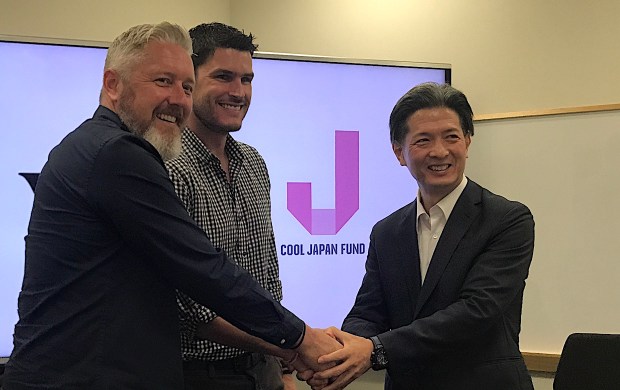
Image credit: Masaru Ikeda
See the original story in Japanese.
Tokyo-based aerospace startup Synspective announced today that it has secured 8.67 billion yen (about $80 million US) in a series A round. This follows their previous round securing 300 million yen (about $2.8 million US) from uTokyo Innovation Platform (uTokyoIPC), Jafco and among other investors back in December.
Alongside with their past funding from Abies Ventures, a deeptech-focused fund led by Japanese renowned entrepreneur/investor Taizo Son, the latest round brought the startup’s funding to 10.9 billion yen (about $100 million US). Japanese space business consultancy CSP Japan reported this is the fastest record in terms of securing such a large amount funds in such a short period since the launch of a company.
Investors participating in this round are as follows (Jafco, uTokyoIPC, and Abies Ventures have participated in the previous round). The latest round is led by aSTART, which launched $46 space tech fund earlier this year and has participated in series C and D rounds for Astroscale, a Japanses startup known for its space-debris removal technology.
- aSTART
- Shimizu Corporation (TSE:1803, Japanese major construction company)
- Jafco (TSE:8595, investment company)
- uTokyo Innovation Platform (uTokyoIPC)
- Keio Innovation Initiative (KII, investment arm of Keio University)
- Abies Ventures
- Innovations and Future Creation (investment arm of Tokyo Institute of Technology)
- Mitsubishi UFJ Trust and Banking
- Fuyo General Lease (TSE:8424)
- Mori Trust (real estate developer owning many commercial buildings in Japanese major cities)
- SBI Investment (SBI AI & Blockchain)
- Mizuho Capital

Image credit: Masaru Ikeda
Synspective was founded in February of 2018 by CEO Motoyuki Arai and co-founder/managing director Seiko Shirasaka (Shirasaka is a professor at System Design and Management, Keio University). Arai was previously working for an American accounting firm while attending the University of Tokyo where he obtained a PhD for Technology Management for Innovation. Subsequently, he was involved in assisting Saudi Arabia to implement renewable energy systems as well as working with the Japanese Ministry of Economy, Trade, and Industry to help Japanese companies expand into this region.
Synspective is building a constellation system for earth observation mini-satellites employing Synthetic Aperture Radar (SAR) and integrates SAR data with a variety of ground truth data. Using machine learning and other engineering techniques, the startup extracts meaning and context from the data to provide solutions to meet clients’ problems.
Developing a SAR mini-satellite requires a high degree of difficulty in engineering while SAR data processing does special expertise. The company has enables these challenges by placing research teams and data scientists in both departments of satellite development and satellite image analysis, alongside with assistance from mini-satellite developers engineers participating in ImPACT, a disruptive technologies development initiative by the Japanese Cabinet Office.
Synspective thinks their use case include developing mining resources, monitoring infrastructure construction and fraud in developing countries, and preventing disaster damage. The company announced in April that it has agreed to Arianespace regarding the launch of the former’s mini-satellite StriX-α.

Image credit: Masaru Ikeda
At the press briefing today, CEO Arai revealed that the company plans to launch one satellite by 2020, six satellites by 2022, and then 25 satellites later on. He said six satellites in operation enables on-demand earth observation at least one time a day for 99 cities with an over-one million population in Asia while 25 satellites in operation can cover 292 cities in the same population scale worldwide. They claim that the latest funding secures the cost for up to the launch of six satellites by 2022 and solution development.
In this space, we have seen active Japanese startups including SAR satellite developer iQPS and satellite image analyzer Sigma-SAR.
See also:



































